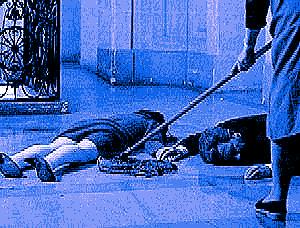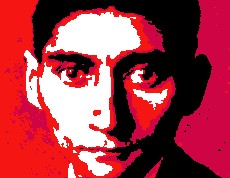Film Review

Perhaps the most surprising thing of all is how accessible the film is. During the 1980s, Godard's cinema showed a progression towards the bewilderingly complex, defying every convention as far as possible. Frequently, he dispensed with any notion of the narrative form, relying on photographic imagery and sound trickery to construct - not a story - but an alternative form of expression. It is this unrelenting striving for originality in film-making that contributed to the director's increasing ostracism from mainstream cinema. Prénom Carmen stands out as possibly the one film during this period where Godard was able to appeal to a wider audience.
This is a film that shines with the director's wry, cynical humour, and carries more than an echo of the director's glory days of the 1960s. Strangely, it is also a very human film. Joesph's obsessive love for Carmen is very subtly and convincing portrayed. Godard even gets to play a warm caricature of himself as Carmen's burnt out uncle, a touching cameo performance which reveals a great deal of how the director saw himself at the time.
© James Travers 2001
The above content is owned by frenchfilms.org and must not be copied.
Film Synopsis
During a failed bank raid, a terrorist named Carmen is seduced by a security guard, Joseph. To escape arrest, Carmen appears to submit to her obsessed lover and the two take refuge in a seaside apartment. However, Carmen remains committed to her terrorist activities and plans a kidnapping, whilst pretending to film a documentary for her uncle, once a great film director. How will Joseph react to Carmen's apparent indifference to their relationship?© James Travers
The above content is owned by frenchfilms.org and must not be copied.
Similar Films
Here are some other films you may enjoy watching:- Last Tango in Paris (1972)
- Benvenuta (1983)
- Les Deux Anglaises et le continent (1971)
- Pretty Baby (1978)
- Women in Love (1969)
Other related links:
Film Credits
- Director: Jean-Luc Godard
- Script: Anne-Marie Miéville
- Cinematographer: Raoul Coutard, Jean-Bernard Menoud
- Cast: Maruschka Detmers (Carmen X), Jacques Bonnaffé (Joseph Bonnaffé), Myriem Roussel (Claire), Christophe Odent (Le chef), Bertrand Liebert (Le garde du corps), Alain Bastien-Thiry (Le valet du grand hôtel), Hippolyte Girardot (Fred), Valérie Dréville (La nourrice), Jacques Villeret (L'homme qui mange des yaourts dans les toilettes de la station-service), Jacques Prat (Violon), Laurent Dangalec (Violon), Bruno Pasquier (Alto), Michel Strauss (Violoncelle), Eloïse Beaune (Eloïse), Sacha Briquet (Cameo appearance), Jean-Luc Godard (Oncle Jeannot), Jean-Pierre Mocky (Le malade qui crie 'Y a-t-il un Français dans la salle?'), Pierre-Alain Chapuis, Odile Roire, Christine Pignet
- Country: France
- Language: French
- Support: Color
- Runtime: 85 min
- Aka: First Name: Carmen
The best French Films of the 1920s

Kafka's tortuous trial of love

The Golden Age of French cinema
